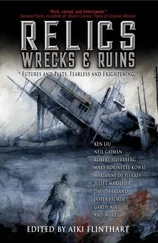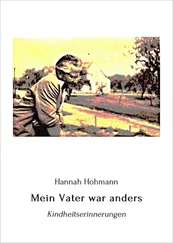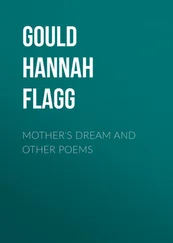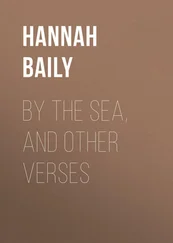There is no point to my life. The sentence appears in my head several times a day. If I said the words out loud, it would sound like a lament. But kept to myself, it’s the best thought I’ve ever had.
—
I sit on my bed in the mornings and evenings, remaining still for long enough that I become attuned to my body’s involuntary movements — abdomen filling and deflating, air rustling my nose hairs, pressure building and easing in my guts, itchy pressure at the center of my chest that gradually grows into the sensation I used to call my annoyment knot. If I can sit still and endure the knot for what seems like a long time, the feeling of agitation gives way to the nearly pleasant pins-and-needles tingling that arises when a numb body part regains sensation, and my heart and groin begin vibrating and floating like those curlicues of light that drift through bright skies, and the only thought I know is a line from a song— oh my little love —which plays in the head of a character in one of my favorite stories when he has sex with his wife. The shift is like opening the door to a gas station restroom and finding a deserted beach. Sky sand ocean stop sky sand ocean stop sky…Only after hours of listening to inner monologues—“Can you see the line of my underwear through these pants? Where did I buy these pants again? And when was that exactly? And what was I wearing that day? I am such a loser for never having read Thomas Hardy. I wish Manuela knew that I have no idea how much I weigh. Is this fart going to make a noise? What about this one?”—do I believe that the monk at Shirmani was not just making a cute philosophical metaphor when he compared the mind to a mug with a hole in the bottom. The entire Indian Ocean could never fill the mug. But I do not need to fill the mug. The mind provides exactly what the mind needs. I just sit; I’m free.
As a narrative experience, it sounds like New Age bunk. As an actual experience, it is enough to live for.
I imagine how my meditating form would appear from the outside — jaw unhinged, tongue wadded against my lower teeth; eyes opened just wide enough to let in shapeless light; lower belly puffed and rounded, as if a baby animal has burrowed into the warmth at my center. Why does it feel obscene to be this relaxed?
In the hottest part of the day, I sit on the wet sand and bathe in the waves’ runoff, then rinse my salt-crusted legs with the hose in Manuela’s yard and lie in the hammock in wet clothes. During the brief, violent rainstorms, I sit on the rocks and watch the world lose its edges. Suriya is back in her boardinghouse hell, staying up late doing schoolwork, waking up early to sweep the house. I miss her, but I don’t miss sharing her life. There is only one pursuit that could justify the privilege of my remove from society, and there is no word for it that does not make me seem like a woman who drinks a potion of cat urine and wasabi root on harvest moon nights: egolessness, superconsciousness, truth. If I use my freedom for any purpose other than cultivating constant awareness of the reality outside my mind, I should die now. The earth should sneeze while I am atop this boulder and feed me to the roaring, frothing wave mouth below.
—
“My son will be here in a few weeks,” Manuela says one night. We’re drinking hot water with ginger. “He spends the summers here.”
“Where does he live the rest of the time?”
She stands up and straightens one of his Christmas cards, talking with her back to me. Emil’s father left when he found out Manuela was pregnant. They were crazy about each other but he didn’t want to be a parent and Manuela just could not have an abortion. The blond dog runs onto the patio and flops at Manuela’s feet. She bends down to scratch his ears. Motherhood made her lose her mind. She could not bear the love she felt for Emil, how that one attachment eclipsed all the other ways she used to be a person. It took her hours to decide whether she should put a coat on him before they went out for a walk and months to decide whether he should sleep with his bedroom door opened or closed — stuff like that, every second of every day, all alone obsessing about tiny details. So Emil has lived with his aunt and uncle and their two kids since he was five. He loves his family. He seems okay.
I fish the ginger out of the bottom of my mug. Before he became the Buddha, Shakyamuni named his son Rahula, meaning fetter. The nun who gave the talk about abandoning hope also said that her family accused her of neglecting her children when she started studying Buddhism. I feel lucky, for a moment, to be unfettered. The only impediments to getting to know myself completely are fear and desire, dragging me toward this and away from that, searching and searching for what can’t be found.
Manuela stands up and picks a notebook off the table. “Tell me if this is too personal,” I say, “but I just — being here all alone for so many years — has it been hard — I mean — not being with anyone—”
“You’re wondering about sex?”
Yes. I’m always wondering about sex. It’s the main question of my life. You could call me shamefully privileged, but my privilege is not the part that I’m ashamed about. I was not born a blind, furry, transsexual orphan. I can accept that about myself. What upsets me is the cliché of my privileged concern. When I was working at Barnes and Noble, it seemed like every other week I was charged with making a conspicuous display of a new book by a woman who claimed to have found a spiritual solution to the problem of sex. Gang bangs heal the wounds of a traumatic childhood! Casual sex is a soul-destroying addiction! Sex is power for women who ignore their emotions! Worship your vagina like the goddess she is! Expert blow jobs are the secret to a happy marriage! Anal sex is the key to women’s liberation! The books reminded me of Sally from Carp Weekly, who would complain when her husband stayed out late. “He is so in the doghouse. No nookie-nookie for him!” As if sex is only a way to get something that has nothing to do with sex.
“I had beautiful sex with Emil’s father,” Manuela says. “So I’ve had that experience. I don’t feel like I need to keep having it over and over until I die.”
I wonder aloud what she means by beautiful.
“I mean that I could relax completely. After we’d been together a little while, of course. I made him feel good; he made me feel good. We didn’t have to talk about it. It was easy.”
I’ve had sex like that a few times, unhurried pleasure given and received of its own accord, no striving. That kind of sex made it feel like all my other encounters, experiments, fantasies were just consolation for the lack of this basic need simply met. Maybe it would be enough to be able to count on sex like that for a sustained period of time; I’d be free to worry about something else.
Still, the first few years here were hard sometimes, Manuela tells me. She’s looking through the bookshelf, her crisp, pale ponytail facing me. “This book helped,” she says, and hands me a thick volume with a smiling Indian man in white on the cover, one hand over his heart: The kind of hippie book my mother would own. I Am That , it’s called. Manuela says good night and joins the darkness beyond the patio.
—
In bed later, I glimpse my reflection in the window as I reach up to pull the cord of the overhead light. My legs, tan and bare and covered in blond down, seem very far away. I run my hands up my calves, massage the sides of my kneecaps, rest my thumbs in the nook between thigh and groin. I willfully conjure the image of Jared inside me. Part of his body moved in and out of part of my body thousands and thousands of times — probably more times than I’ve done any other activity involving another human being. And yet it seems dizzyingly extreme to think of it now, like jumping off a bridge into a pitch-black lake.
Читать дальше












